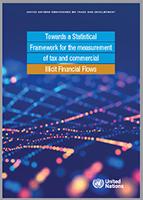
This technical paper is grounded on the Conceptual Framework for the Statistical Measurement of Illicit Financial Flows developed by UNCTAD and United Nations Office on Drugs and Crime (UNODC) in consultation with an International Task Force on the Statistical Measurement of Illicit Financial Flows and other partners.
This work has benefitted from the joint capacity building efforts undertaken with regional partners, particularly the United Nations Economic Commission for Africa (ECA), Economic Commission for Latin America and the Caribbean (ECLAC), Economic and Social Commission for Asia and the Pacific (ESCAP), and Economic and Social Commission for Western Asia (ESCWA).
Projects in Latin America, Africa and Asia have contributed to the conceptual and methodological developments reflected in the paper.
The methods to measure tax and commercial illicit financial flows (IFFs) were pilot tested by Angola, Benin, Burkina Faso, Egypt, Gabon, Ghana, Kyrgyzstan, Mozambique, Namibia, Nigeria, Senegal, South Africa, Uzbekistan and Zambia. The collaboration with member States and partner organizations has shaped the Conceptual Framework and the methodologies to measure IFFs.
This technical paper shares the results of the work carried out under the auspices of UNCTAD and UNODC as custodians of the Sustainable Development Goals (SDG) indicator 16.4.1 on the total value of inward and outward illicit financial flows with a particular focus on tax and commercial flows.


